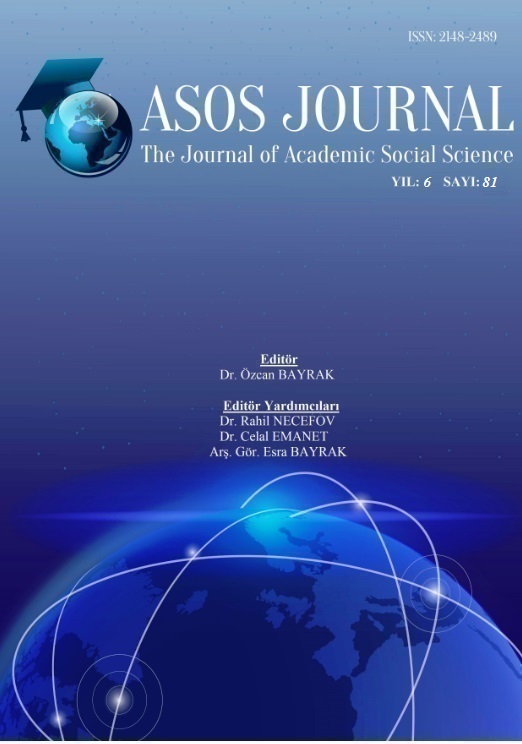Author :
Abstract
Ses mefhumunu payda edinerek vuku bulan kültürel, yani insana dair olan dil ve müzik mefhumlarının, geleneksel müzik kültürümüz kapsamında harman oluşuna işaret örnekler söz konusudur. Bu örnekler, “ses” denilen mefhumun içerdiği “art ardalık” olgusunu, Anadolu’nun avazına mündemiç olarak işittirmektedir. Art ardalık olgusu, içerdiği unsurlar bakımından “eklemli”, “parçalı” oluşu işaret etmekle birlikte; onun içerdiği unsurların gereğince yinelenerek işittirilmesi de, birlikte “bir” oluşu aşıkar etmektedir. Dilsel ve müziksel sesletime dair unsurların ilgili örnekler bağlamlı sergiledikleri, hem dilsel hem de müziksel zamana gönderme yapan art ardalık halleri; yine, bu mefhumlar bağlamına gönderme yapan ve Türk müziğinde zamanın bölümlenişine dair îkā ve usûl mefhumlarınca değerlendirilmektedir. Îkā denilen mefhumun bölünme anlamı öne çıkarılarak; “zamansal bölünme” mefhumuna, geleneksel müzik kültürümüze dair örnekler aracılı, bir bakıma “çevreden evrene” olarak tabir edilen ilke nazarında bakılmakta ve dokunulmaktadır.
Keywords
Abstract
There are examples related to the blend within the scope of our traditional culture of music of the concepts of language and music, which are cultural, namely related to human, that are positioned on the denominator of the concept of sound. These examples echo the fact of “succession” which the concept called “sound” involves implicit in the sound of Anatolia. The concept of succession though points out being “articulated” and “partial” from the point of elements it includes, having it heard by repetition pursuant to the elements it includes reveal “an” occurrence together. The conditions of succession demonstrated by elements related to lingual and musical pronunciation within the context of relevant examples that refer to both linguistic and musical time, are assessed by the concepts of “syllabic rhythm/îkā” and “rhythm/usûl” which also refer to the context of these concepts and which related to the partition of time in Turkish music. By emphasizing the meaning of partition in the concept called “îkā”, the concept of “temporal partition” is considered and touched under the principle called “from the surrounding to the universe” in a sense with a mediation of examples related to our traditional musical culture.





